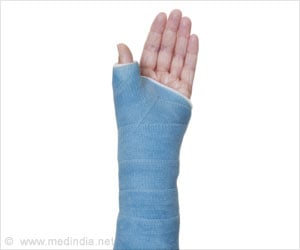Australian scientists have observed that very sick patients tend to have very low levels of Vitamin D.
The sicker they are, the lower the levels, the group of endocrinologists in Sydney said.To reach the conclusion, Dr Paul Lee, Professor John Eisman and Associate Professor Jackie Center, researchers at Sydney's Garvan Institute of Medical Research, examined a cohort of 42 Intensive Care Unit (ICU) patients. Forty-five percent turned out to be Vitamin D deficient.
The study has been published in the New England Journal of Medicine.
"Until now, the medical community has thought of Vitamin D deficiency as a chronic condition. Little is known about its acute complications," said Dr. Lee.
"Last year, we published several cases showing that Vitamin D deficiency can cause acute complications in the intensive care unit.
"Recently, Vitamin D has been recognised for its many roles beyond the musculoskeletal system. It has been implicated in diabetes, in the immune system, in cancers, in heart disease and in metabolic syndrome.
Advertisement
"So we did a preliminary study and found that 45 percent of people in our ICU were Vitamin D deficient. There may be a bias, in that all patients were referred to endocrinology, so the numbers may not reflect the prevalence in a standard ICU cohort. However 45 percent is still a significant proportion," the expert added.
Advertisement
"Perhaps when we are well, we have ways to compensate for organ dysfunction if we run low on Vitamin D. But when we are very sick, the "sick organs" draw upon any vitamin D available to function properly, therefore we may need extra Vitamin D to maintain organ function during critical illness. However, at this stage, we don't know whether Vitamin D deficiency is just a marker of ill health, or whether it contributes to disease severity," Lee concluded.
Source-ANI
SRM













